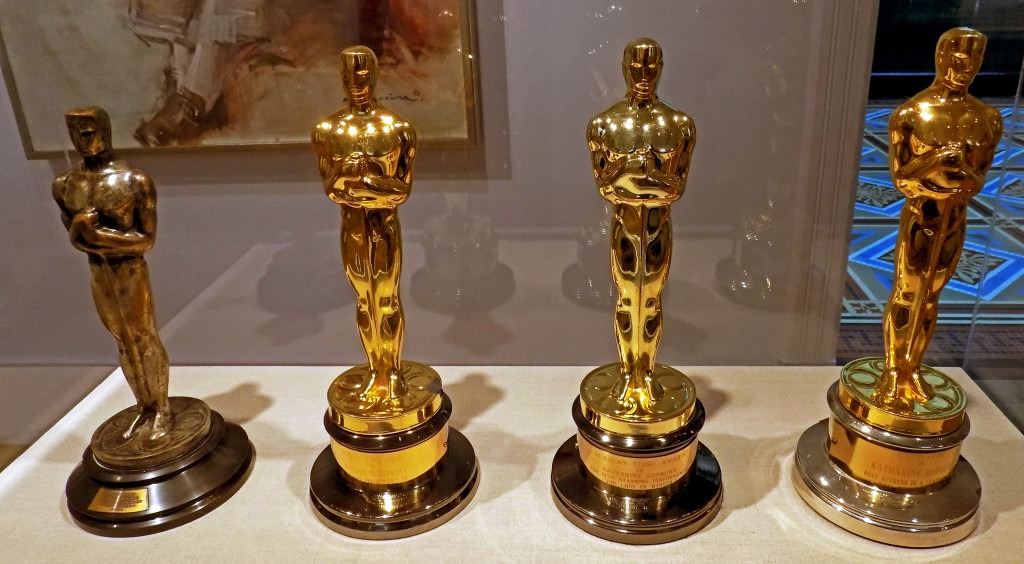
RIANNA SEELIG
Staff Writer
The 2016 Oscar nominations were announced Jan. 14, 2016 at 5:30 a.m. PST — an event that is often highly anticipated and excitedly received. Unfortunately, reactions were rather negative by viewers and celebrities alike.
There has always been a certain profundity and prestige to Oscar nominations. Should a film be nominated, constant social media and news coverage is guaranteed. The same goes for actors, actresses, directors, cinematographers, etc. Should you win, you’re set.
This year, the nominees for Best Picture, the most prestigious award, are as follows: “The Big Short,” “Bridge of Spies,” “Brooklyn,” “Mad Max,” “The Martian,” “The Revenant,” “Room” and “Spotlight.”
These films are all astounding in their own respect, tackling heavy subjects such as corrupt financial institutions, sex scandals involving the Catholic Church, child abuse and war, just to name a few. An issue for many lies in the bold lack of racial diversity within the nominees, an issue that’s been touched upon for a few years now.
In the past six years, the world has seen some fantastic wins in the Best Picture category (“The King’s Speech,” “The Artist,” “Argo,” “12 Years a Slave,” and “Birdman,” respectively). The problem is, out of six year’s worth of nominations, only one film starred a black actor.
Dustin Parsons, a professor in the English Department, identified this issue at a pattern, pointing out past examples of the same trend.
“For two consecutive years, major performances from actors and directors of color have been ignored.” He continued by pointing out the lack of nominations for last year’s film, “Selma.”
Upon the announcement of this year’s nominees, many individuals began pointing out an alarming lack of racial diversity among nominees, applicable to virtually every award category the Oscars feature.
Immediately, two films stood out that many agreed deserved various nominations yet received none: “Beasts of No Nation” and “Concussion.” Both films, according to the majority of celebrities and fans, had the potential for nominations including Best Picture and Best Leading Actor (Idris Elba and Will Smith, respectively).
Out of these two films, the lack of acknowledgment for “Beasts of No Nation” seem to stir up the most backlash. The announcement of the nominees, according to Variety.com, garnered the most online buzz concerning what has been coined a blatant “snub.”
Many unhappy viewers and celebrities took to using the hashtag “#oscarssowhite” over social media when discussing the lack of representation, creating a dialogue that spanned over Twitter, Instagram, Tumblr and Facebook. Parsons discussed the benefits of this social media movement.
“#oscarssowhite” may seem small, but the Academy has already seen fit to make adjustments to their time schedules for deliberations about their methodology for selection,” he said.
Great discussion and debate has occurred since the nominations announcement attempting to determine the real issue: is it the fact that the Academy is heavily white and simply tends to disregard films involving people of color, or is it the fact that Hollywood really isn’t churning out a ton of opportunities for people of color?
Fredonia alumna Courtney Loiacono feels this year’s nomination selections highlight a much greater problem that involves both the film industry and the Academy.
“The lack of diversity at the Oscars shows the tip of the iceberg of how discriminatory Hollywood is. It shows that the stories we are supposed to value as universally powerful and impactful must revolve around white people.”
While some celebrities, notably Jada and Will Smith, have taken to simply boycotting the Oscars, there does not seem to be a simple solution in sight. Some feel boycotting is a great option, while some find it pointless. Fredonia alumni Nicholas Bernard feels the act of boycotting holds a lot of power.
“One of Hollywood’s most powerful black movie star couples said that they are not going to the biggest night in film and stated why,” he said. “This then snowballed into its fair share of backlash, but also a lot of people stepping up to really drive the point home that this kind of erasure will not stand.”
The Oscars air on Feb. 28 at 8:30 p.m. EST. However, the amount of support and general attendance from fed-up celebrities the award show will receive is TBA.
